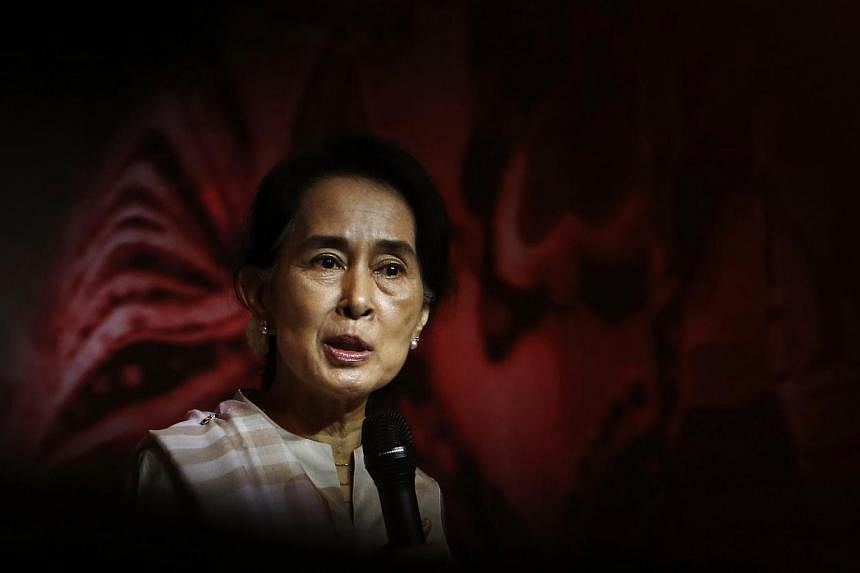NAYPIDAW (MYANMAR ELEVEN\ASIA NEWS NETWORK) - Myanmar Parliamentary Speaker Shwe Mann's timetable for the charter change is logical, said Aung San Suu Kyi, chairperson of the National League for Democracy (NLD) to media representatives.
"He has only laid out the process for charter change. Only after we amend Section 436 can we make changes to other sections. This process is in conformity with our current work," she said on Wednesday.
"The amendments should be made in step-by-step manner. Section 436 should be amended before we change 59 (F). This process is natural," she added.
Unelected soldiers currently make up a quarter of Myanmar's legislature, a hangover from military rule that ended in 2011 which ensures that the army continues to hold sway.
Under Section 436, any significant changes to the Constitution require a majority vote of more than 75 per cent, thereby giving the last say to soldiers.
Clause 59(f), on the other hand, bars anyone from becoming president if they or anyone in their family has foreign citizenship.
Suu Kyi was married to a British citizen and their two sons are British citizens, disqualifying her for the presidency.
The democracy icon went on to explain that by following such a process, lawmakers would be following the path toward democracy.
"Our disagreement over the army's role should be in accordance with the democratic standards," she said.
However, she also remarked that the role allotted to the army by the 2008 constitution is inherently undemocratic and must be changed.
Suu Kyi's approval of Shwe Mann's timeline, which would only allow amendments to take effect after the coming national election, seems to signal her acceptance of the reality that she will not be permitted to run for president in 2015.
"We will have finished discussions by November 25," Shwe Mann, speaker of the Union Parliament had said at a press conference on November 18.
"The bills to be submitted to the Union parliament will be decided and approved at the next parliamentary session.
"The resulting decisions will have to be approved by referendum, and that will be done in May 2015.
"After the 2015 elections, the provisions enacted by the constitution will have to be approved when the Lower House of parliament and the Union parliament convene. The constitutional amendments cannot be enacted immediately following the referendum.
"They will depend on the results of the election. We are making strenuous efforts. All are urged to extend a helping hand to us. The referendum is a difficult matter. Plans are underway to successfully accomplish this process by means of enacting laws," he had said.
"It would be better to ask lawyers about the law. You should ask people like Win Myint. He can explain it more clearly," Suu Kyi told reporters.

